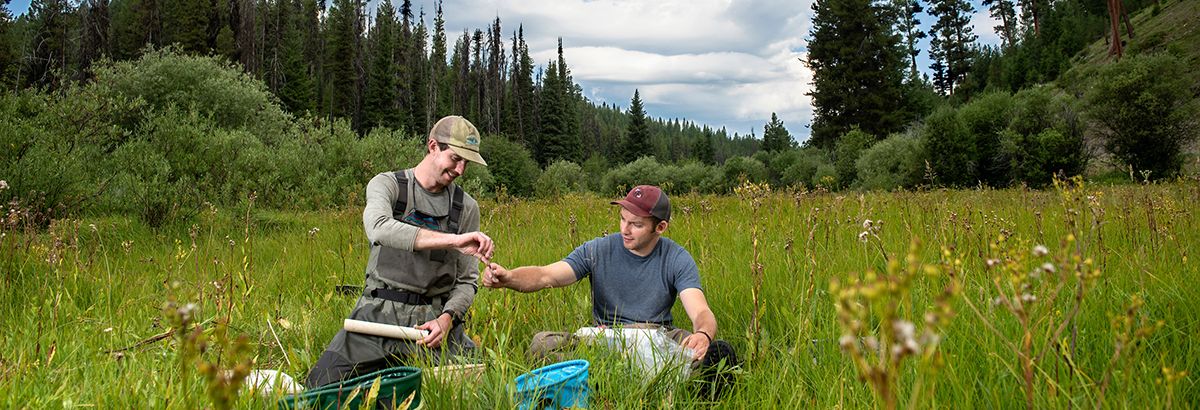Student Spotlight: Connor Southard
In this episode, Connor Southard recounts his childhood love of reading fiction, which was the origin of his desire to pursue writing. He reflects on the novel he wrote while completing his M.F.A., including his thoughts on the twin roles of the fiction writer as an entertainer and as a vehicle for readers to convert suffering into beauty.
TRANSCRIPT
I grew up in a household where writing and reading -- novels in particular -- were sort of a secular religion. When it gets modeled for you as kind of the highest pursuit that there is, you know, not, not necessarily consciously people saying that, but just that's what you see, it’s hard not to be drawn to it in some way.
I'm Connor Wroe Southard, and I am a graduating MFA student in fiction writing in the creative writing program.
From a very young age I knew I'd be writing in some capacity. And I think fiction is the thing that I value most as a reader. I think that the book that I think about constantly is Kazuo Ishiguro's Never Let Me Go. It made me feel something that I couldn't quite describe. There was something there that was just hard to define no matter how you analyze the story. And I think at it's best, that's what fiction does for me. Like it, it takes you to a place, emotionally and otherwise that you can't fully explain.
I think that, that my thesis reflects the sort of the ways that I've kind of played around in the program. And actually, I wrote an entire novel here. I didn't want to use it as my thesis, ultimately, because I just didn't think it was that interesting, really. But what I ended up doing was just using a couple -- my two best short stories that seemed to have really made an impact on people that are very different. One is about two robots far into the future who discover a bunch of books and learn about humans through books. And the other one is about, it's about like, being in my hometown, working at the hippie grocery I worked at, riding your bike around town. The things that I used to do, to some degree. And then I have some novel pages. The novel is also set in a fictional version of my hometown. I think at one level, as a writer, I'm just an entertainer. At a deeper level, I think that I write a lot about people who are struggling to, to feel the right thing, to sort of corral their feelings, to sort of reckoning with that kind of inward identity. Like, what am I? What am I really doing? I think that I really am interested in the ways that sort of pain and suffering, which are universals, can sort of be rendered and rerouted into sort of beauty and poignancy. A lot of good art goes in that direction, I think.
We have a really phenomenal creative writing program here. This program's been around for a long time and it's been very good for a long time. I think I've been very, very lucky. I think -- shout out to my cohort -- I mean we got a lot of love for each other and that's probably the key thing really. We've had a group that's been very kind and generous to one another, but also pushes each other. And kind of a group where you want to bring in your best work for the group. And I think that's the best thing you can ask for in an MFA program. And then the faculty, you know, of course. People like Boris Fishman, Kevin Canty, Debra Magpie Earling and others have done a really just phenomenal job. I could not have asked for a better MFA experience. But I think, above all else, it's the people here.
